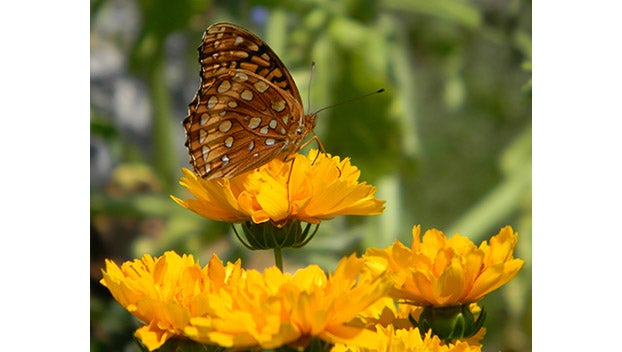The Garden Muse —Calendula a must have plant in the garden
Published 1:00 pm Friday, June 3, 2022
|
Getting your Trinity Audio player ready...
|
Calendula officinalis (Pot marigold) is an herbaceous plant in the daisy family Asteraceae and is not a member of the marigold family of plants. Each plant will form a neat mound and can grow to fifteen inches tall; it is an extremely easy flowering herb to grow from seed. It is native to southern Europe and Eastern Mediterranean.
Calendula blooms all season long Spring through Fall. It will thrive and bloom even more when picked & dead headed. It will reseed itself year after year if conditions are right, usually reemerging the next year in a part of the garden that you do not particularly want it to be. That’s okay with me though…its many attributes make up for its nomadic self -seeding behavior.
Calendula has many uses. The plant and its by products (oils, etc.) is considered to have anti-fungal, anti- inflammatory, and anti-bacterial properties. It is used in medicinal skin creams, as an antiseptic and in many cosmetics. It is one of the most known ‘floral healers.’
The flowers, petals and leaves of the Calendula plant can also be used for culinary purposes. The flowers and petals are most often used as a garnish, seasoning or food colorant. The leaves are often added to a leafy green salad and have a bitter flavor.
My favorite of all its many uses is simply as a plant in the garden. Calendula is a great pollinator plant. The Bees, butterflies, beneficial insects (lady beetles, lace wings, hover flies) and birds all love its profusion of pollen and nectar rich flowers.
Plant some Calendula in the vegetable garden to deter Aphids and Thrips from dining on your plants. It also offends the Asparagus Beetle, Tomato Horn Worm, and soil nematodes.
In addition to all the above-mentioned benefits of planting Calendula, Mosquitos hate the scent of it.
Avoid Calendula if you are allergic to plants in the Asteraceae/Compositae family, Pregnant or Breast feeding. As with all plants/herbs consult a professional before consuming or using in a medicinal fashion.
Dawn Conrad is a Virginia Cooperative Extension Master Gardener, Herbal enthusiast, Writer and Fiber Artist. She can be contacted at dawn@mygardenmuse. com.






